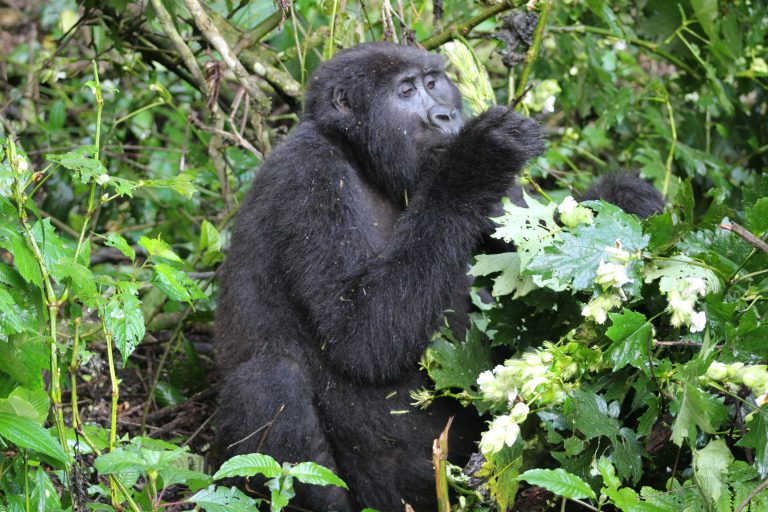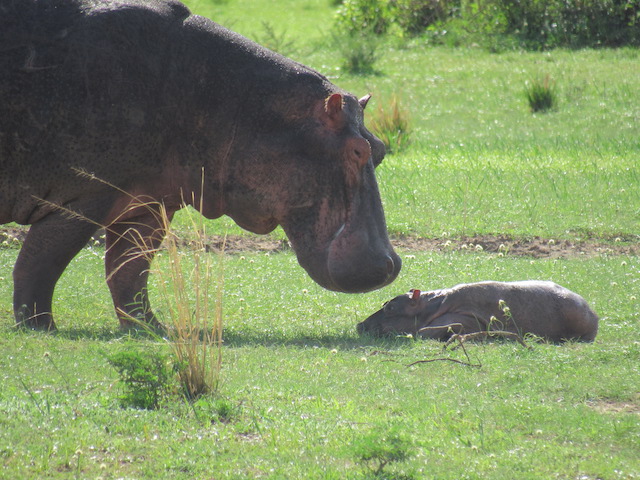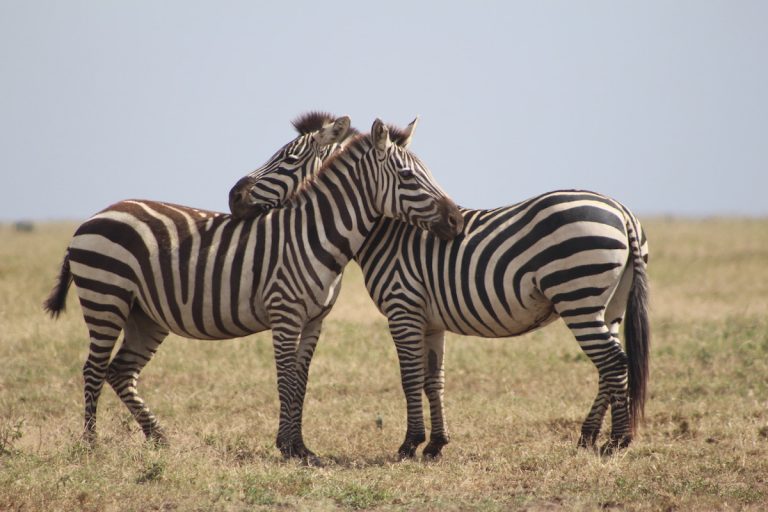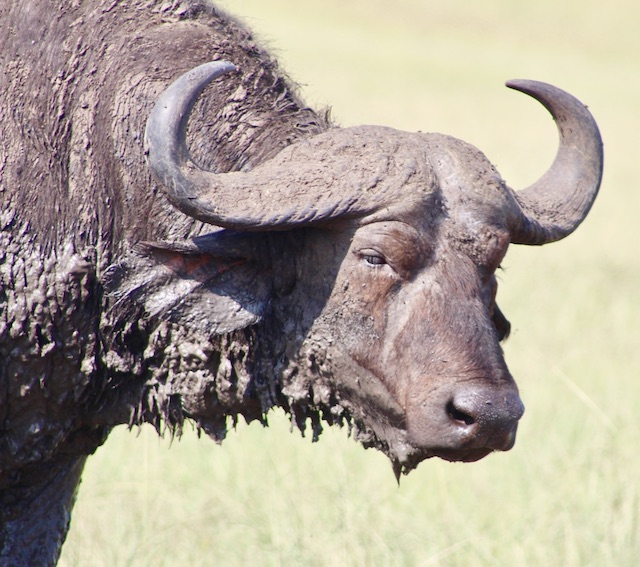We dive in to the Best place to see Rhinos in Kenya while on an African safari. Kenya is in the top best safari destinations to see rhinos in Africa. It is home to both black and white rhinos, including the world’s only two remaining northern white rhinos. Kenya had at least 20,000 black rhinos The Eastern black rhinos are currently estimated at about 900 and the southern white rhinos at about 800. Here are the best sites to see Rhinos in Kenya;
Ol Pejeta Conservancy – Rhinos in Kenya
 The Ol Pejeta Conservancy is the greatest spot in Kenya to witness Rhinos up close. Ol Pejeta Conservancy is located in the foothills of Aberdare’s National Park and snow-capped Mt Kenya. It is home to the two last Northern White Rhinos, black Rhinos, and Southern White Rhinos.
The Ol Pejeta Conservancy is the greatest spot in Kenya to witness Rhinos up close. Ol Pejeta Conservancy is located in the foothills of Aberdare’s National Park and snow-capped Mt Kenya. It is home to the two last Northern White Rhinos, black Rhinos, and Southern White Rhinos.
The Conservancy offers the most activities of any Kenyan park or conservancy, including game drives, lion trekking, horseback riding, cycling, community visits, and mountain biking among others. Furthermore, Ol Pejeta runs a community development initiative and provides financing to local communities for education, water, and infrastructure.
Lake Nakuru National Park – Rhinos in Kenya
Lake Nakuru National Park, Kenya’s first rhino sanctuary, is surrounded by woody and bushy meadows and the magnificence of a grey-green forest of euphorbia candelabrum. The Park provides sanctuary to some of the world’s most endangered wildlife, including both white and black rhinos.
With its alkaline lake, the Park is also home to large herds of pink flamingos. Originally developed as a bird sanctuary, Lake Nakuru National Park now has a rich animal fauna that includes some of Kenya’s most endangered species, including the rare Rothchild’s giraffe and the endangered black and white rhino.
Masai Mara National Reserve
The Mara is one of the world’s best wildernesses. The reserve provides excellent opportunities to see rhinos and other wildlife, including the great wildebeest migration. The migration occurs every year in July/August when over 1.5 million wildebeests, along with large numbers of Zebras and Thompson’s gazelle, migrate from Tanzania’s Serengeti plains to the Masai Mara in search of fresh pastures before returning in October. During the migration, you have the opportunity to watch lions, and cheetahs among other predators hunting.
At any given time, there are between 35 and 50 black rhinos in the Masai Mara (many traverses into the Serengeti as well). Many of these are best sighted while at Sala’s camp, along the Sand River. Sala’s camp is situated on the outskirts of a dedicated black rhino sanctuary in the remote southern Masai Mara. While in the Mara, travelers are often fortunate to encounter black rhinos on roughly 30% of the game drives.
Tsavo National Park – Rhinos in Kenya
Tsavo national park is Kenya’s largest conservation area, covering an area of 21,812 square kilometres. The area consists of two protected areas separated by only a road (Nairobi – Mombasa Route) that is; Tsavo East and Tsavo West. The Parks protect a significant population of wildlife, including the Big Five, but the parks are not as populated as Maasai Mara national reserve and Amboseli national park. Nevertheless, Tsavo National Park is famed for its species such as wild dogs, lions, elephants, cape buffaloes, rhinos, and leopards, among others.
Tsavo National Park is also one of the best places in Kenya to see wild rhinos. The Park is home to roughly 70 black rhinos in its Ngulia Rhino Sanctuary. The Ngulia Rhino Sanctuary was established in 1986 to conserve the last rhino population in Tsavo West National Park. It is surrounded by a tall electric fence and is monitored by a dedicated anti-poaching team. Earlier before, Tsavo National Park had approximately 20,000 rhinos in 1940. But owing to poaching, the park had less than 20 rhinos by 1989, prompting the construction of Ngulia Rhino Sanctuary. The refuge has 5 waterholes and now sustains roughly 70 black rhinos. The sanctuary provides excellent opportunities to see the elusive black rhinos.
Lewa Wildlife Conservancy – Rhinos in Kenya
The Lewa Wildlife Conservancy is located in northern Kenya in Meru County, south of Isiolo and north of Mount Kenya. It was established in 1995 and it includes the Ngare Ndare Forest, which spans over 62,000 acres. The Conservancy is home to a diverse range of animals, including rare and endangered black rhinos, sitatungas, and Grevy’s zebras. It also covers four of the other big five (lions, leopards, elephants, and Cape buffaloes). Lewa is home to approximately 10% of Kenya’s black rhino population and 15% of the country’s southern white rhino population. After Ol Pejeta Conservancy, it is one of the greatest places in Kenya to see rhinos.
The Conservancy also houses the Northern Rangelands Trust. This is an innovative collaboration with several northern communities that have donated land for wildlife preservation. Lewa also has an education program that assists in the development of schools and students.





